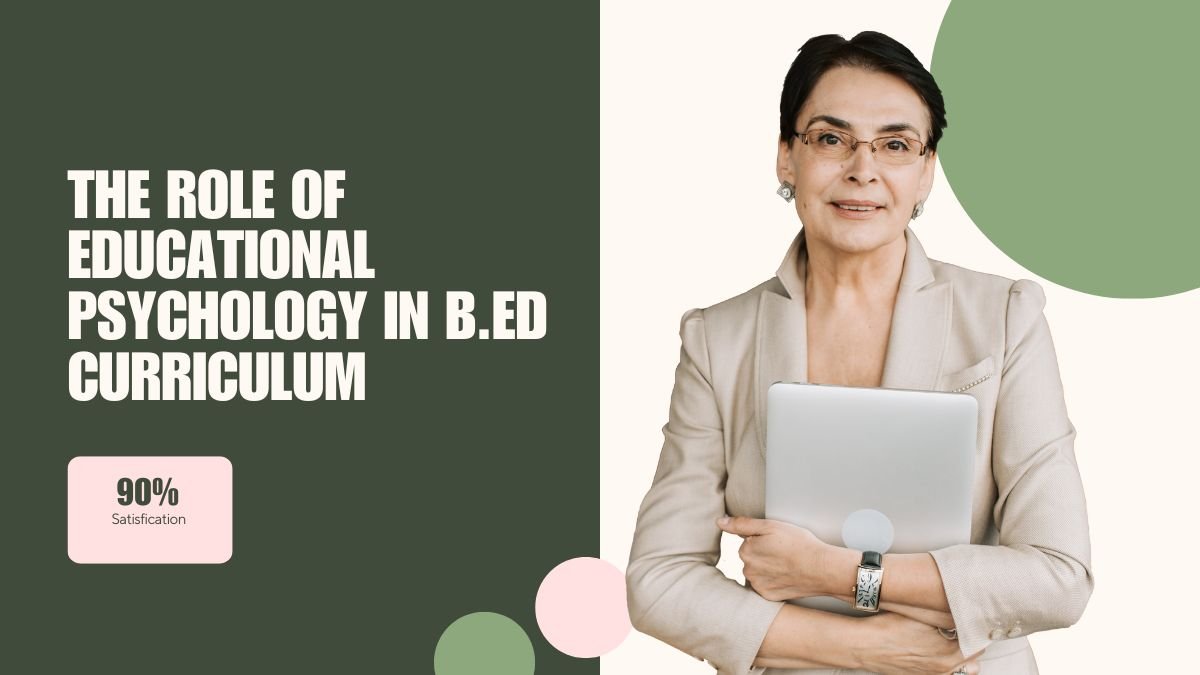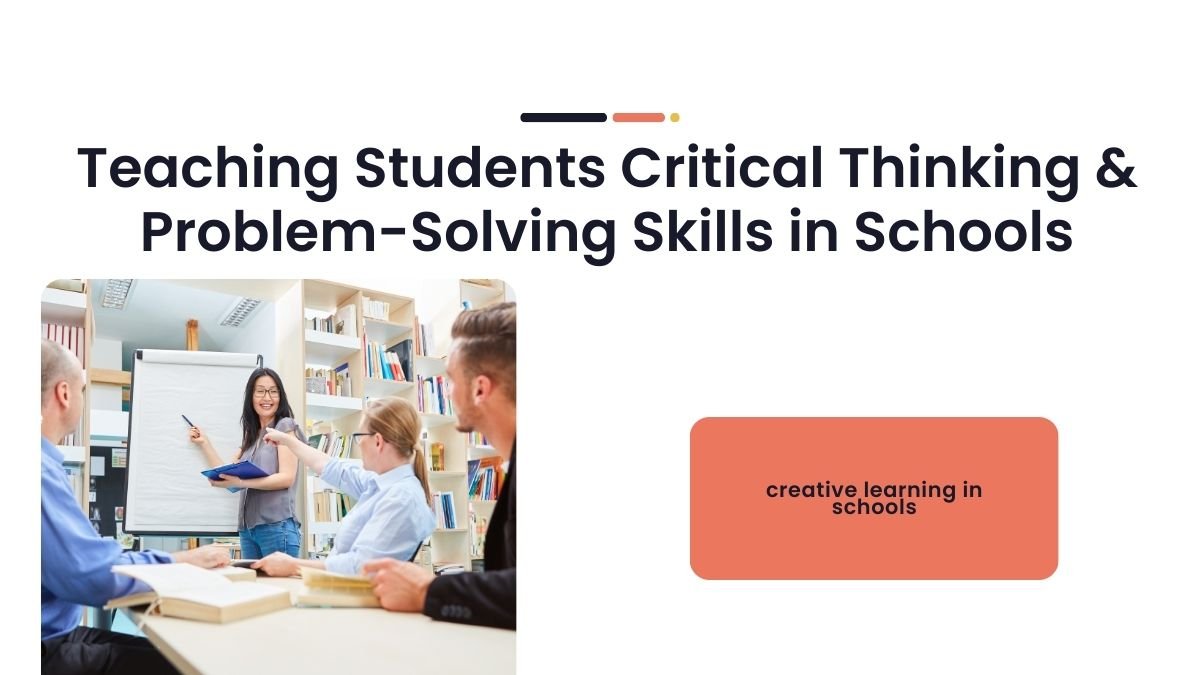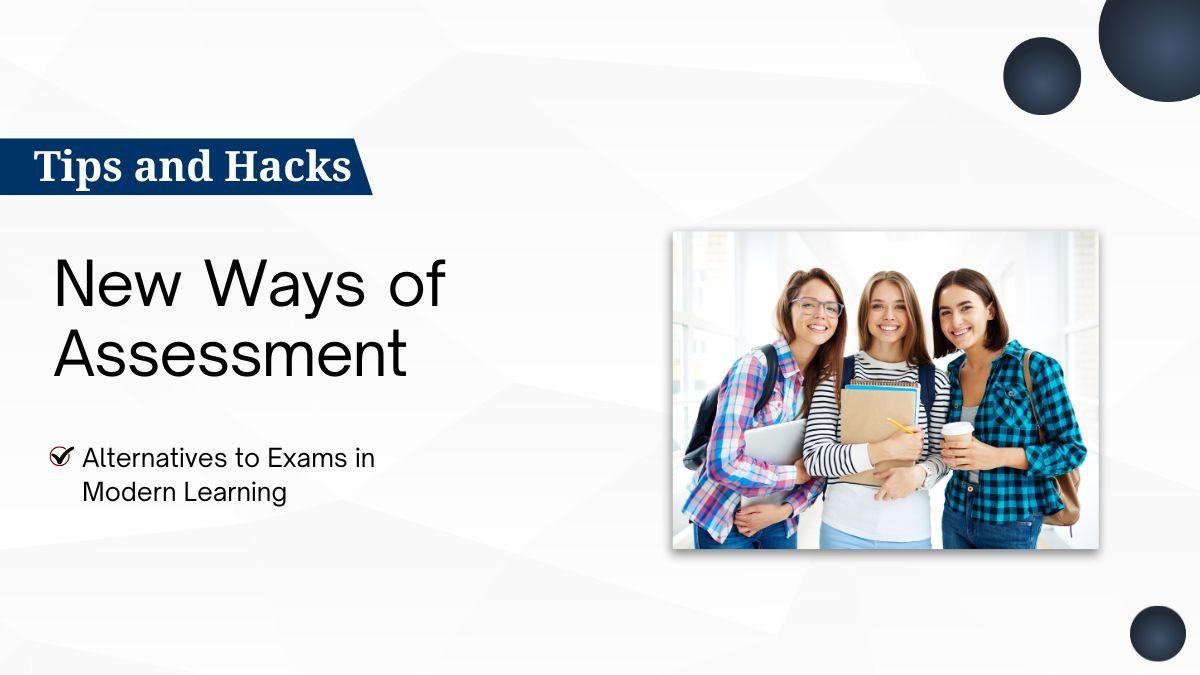Educational Psychology and Significance for B.Ed Students
Educational Psychology is one of the most important subjects for B.Ed (Bachelor of Education) students. It does not just limit the students to reading their theories but also helps in understanding the learner mind and mental ability of children and how learning could be possible according to their individual needs.
A teacher’s main objective is not just teaching books but understanding students’ development and providing the environment where they learn motivatedly and develop their full potentials on their own. Educational psychology guides a teacher in this direction.
Educational Psychology Contribution in B.Ed
1. Knowledge of Learner Behavior and Growth Personalization
A child varies. Some learn fast; some learn slow. Some child is calm, some are curious, and others, active. Educational psychology provides an understanding to the student of what child can learn what at what stage.
- Developmental stages: Understanding the mental, social, and physical capabilities of children according to their age.
- Individual differences: Designing curriculum based on the child’s background, interest, and learning style.
For example, games and visual activities are effective means when teaching mathematical essentials to sixth graders, while a logical explanation and problem solving are most important for tenth graders.
2. Effectiveness of Teaching Strategy Development
Educational psychology helps one identify the most effective mode of teaching in relation to the learning needs of every individual learner.
- Different age levels: Dynamic Curricula and method of teaching according to the age and mental ability of children.
- Different learning styles:
- Visual learners (learning through pictures and charts)
- Auditory learners (learning through stories and explanations)
- Kinesthetic learners (learning through hands-on experiments and activities)
For example: To explain water cycle in science, some show video to some students, get some students to make models and get some children to have group discussions.
3. Improving Curriculum Structure
Education psychology will help the teacher know which topic should be taught in what order and at what level.
- Prior knowledge and mental ability of students should be taken into consideration while selecting the content.
- Theory and practical must be balanced in the syllabus.
For example, in a science lesson, first concepts will be introduced; then, experiments will be conducted; and lastly, the teacher will assess learning through questioning.
4. Incentives and Active Involvement
The main duty of a teacher is to encourage students in order to make them learn.
- Motivational factor: Explain the relevance of the subject matter to students and how they can use it in life.
- Active Engagement: Techniques such as games, group activities, and quizzes make students active in learning.
For example: In Mathematics: Let children say that if they were to manage accounts themselves, then how would percentages work? Here, motivation is provided to learning with real-life application.
5. Better Classroom Management
Classroom management techniques learned from educational psychology include the following: how to positively and productively condition classroom environments for teaching; maintaining discipline; not strictness; dividing children into groups so that cooperation and collective learning can increase; and appropriate time management.
For example, if some students are more active and do not listen to others, then their attention can be diverted in the right direction through group activities.
6. Respond to Differences With Individuals
Each child learns differently. Some will need more time; some will need to receive extra support. Educational psychology teaches the teacher how to teach according to the needs of the student.
For example, if a child is fast in studies, he can be taught separately through tutoring or with simple examples.
7. Facilitation of Assessment and Evaluation
Important to the teacher is knowing how much the children are learning and where they are failing.
- Formative assessment (Classroom questions, quizzes)
- Summative assessment (Projects, tests, exams)
Educational psychology tells the students what kind of assessment can be used to draw the right conclusions.
8. Promotion of Developing Mindsets
For example, “Try to teach the idea in the minds of children that skills and success aren’t simply born but rather earned through effort and practice. Don’t let them ever be afraid of making mistakes; focus on effort and improvement.”
9. Provision of Educational Policy Information
Not limited to the class; educational psychology allows teachers to have a voice in reforms and policies in education on the basis of data and psychological principles. And above all, schools and states apply such policies.
For example, improving curriculum and teacher training based on how fast children learn.
Conclusion
Educational Psychology is not a subject for B.Ed students but a foundation for that teacher.
- It makes them understand the behavior and learning of their students.
- Understand how B.Ed works.
- Teach how to develop motivational, inclusive and effective teaching strategies.
- It helps in classroom measurement, assessment, and designing a curriculum.
- Develops developmental mindsets and confidence in students.
Thus the more B.Ed students master this subject, the better they will be able to guarantee positive and meaningful learning experiences for their future students.









